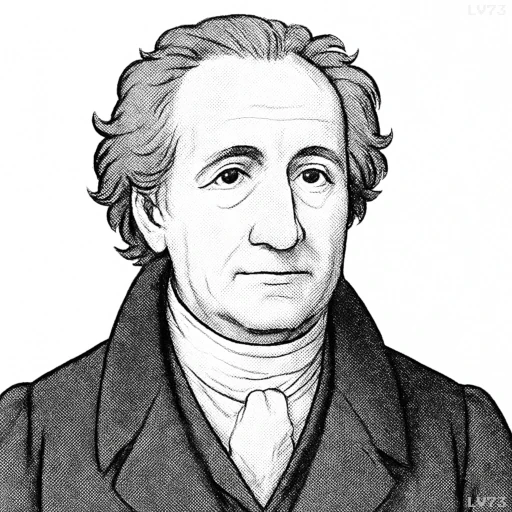“Men show their character in nothing more clearly than what they think laughable.”

- August 28, 1749 – March 22, 1832
- German
- Poet, playwright, novelist, philosopher, politician
table of contents
Quote
“Men show their character in nothing more clearly than what they think laughable.”
Explanation
Goethe suggests that what we find humorous or laugh at reveals a great deal about our values, beliefs, and character. The things that make us laugh often align with our personal sensibilities and cultural norms, and they can expose how we view the world, ourselves, and others. What one person finds funny—whether it’s a joke, a situation, or the behavior of others—can reflect their deeper attitudes toward society, morality, and even human nature. Laughter often reveals what we value, what we condone, and what we reject, making it a telling reflection of our internal world.
Historically, this idea connects with Goethe’s interest in human nature and the ways in which personal values shape our perceptions of the world. Humor, as a form of expression, has long been seen as a window into deeper truths about individuals and societies. Goethe, who often explored the complexity of human emotions and behaviors, would have recognized that laughter is not just a reaction to external events, but a reflection of inner beliefs and personality.
In modern contexts, this idea is relevant in understanding how humor is often shaped by cultural and social factors. What one group finds laughable, another might find offensive or inappropriate, revealing differing worldviews or social norms. For example, in the realm of political satire or comedy, the things that elicit laughter can show attitudes toward power, justice, or social issues. Understanding what others find funny, or what they dismiss as laughable, can provide deeper insights into their personal values and the societal forces that shape them.
Goethe’s words remind us that humor is not just a trivial or superficial experience—it is a powerful lens through which we can understand an individual’s character and the underlying beliefs that inform their actions and attitudes toward the world. What makes us laugh reveals what we value, believe, and reject, offering insight into our deeper selves.
Would you like to share your impressions or related stories about this quote in the comments section?



